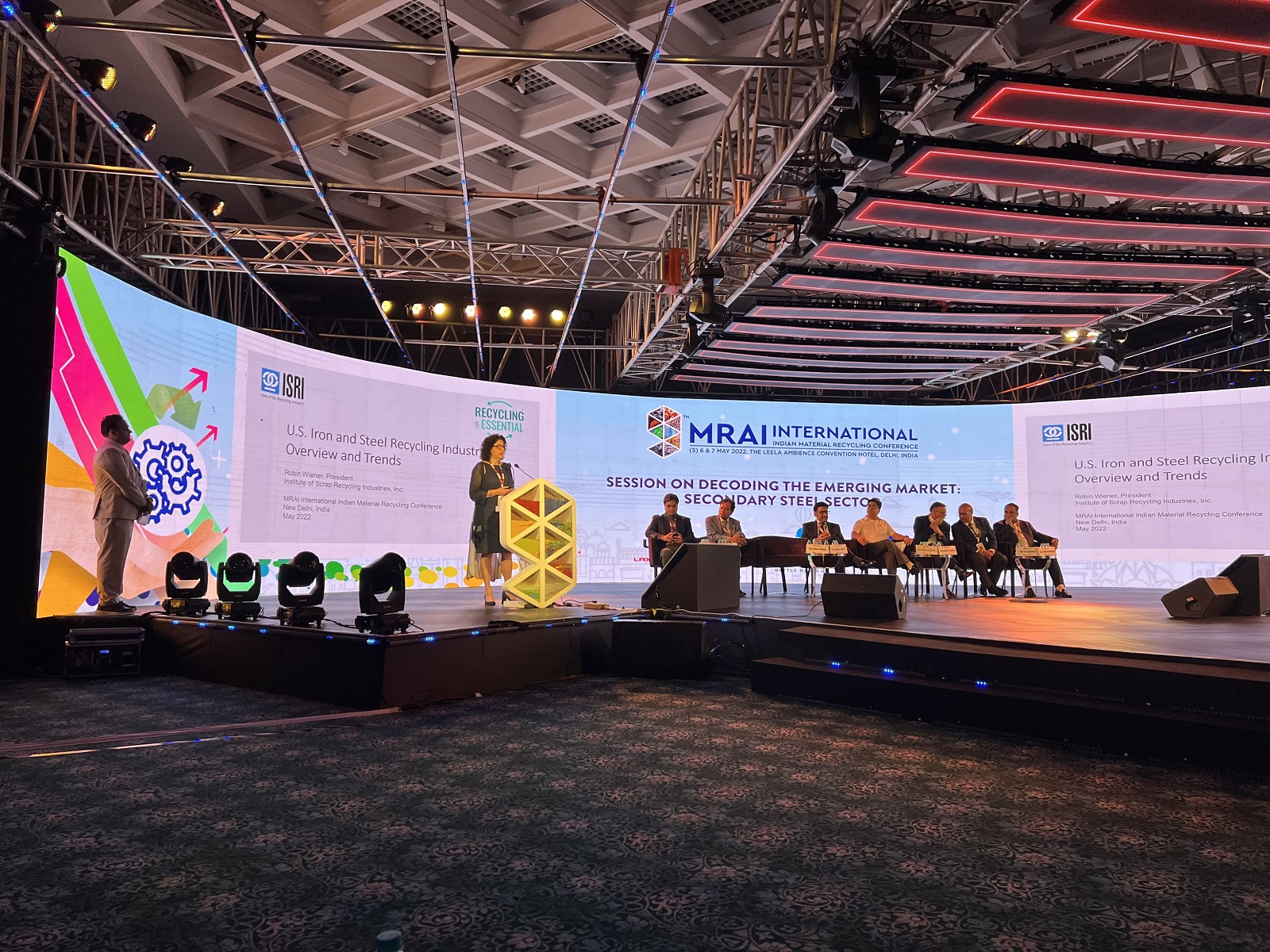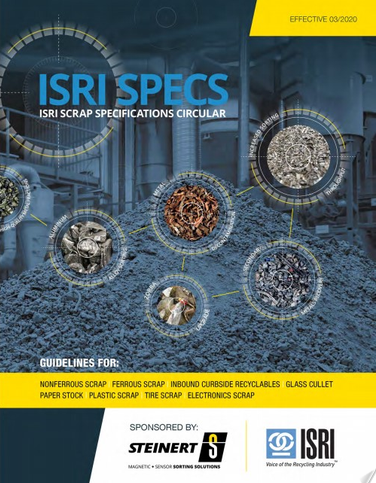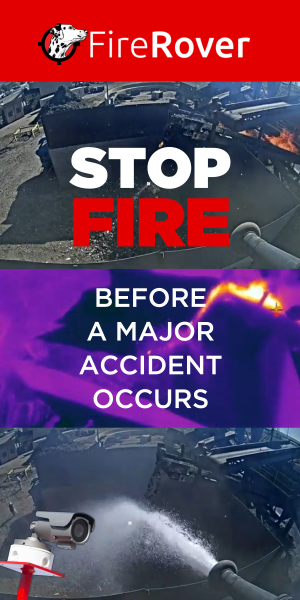During the first week of May, ISRI Chair Brian Henesey and ISRI President Robin Wiener traveled to Delhi, India, for the annual Material Recycling Association of India (MRAI) Conference. Held at the Leela Ambience Convention Hotel, the conference brought together recyclers and traders from the Indian subcontinent and beyond.
The three-day event featured speakers from government ministries, companies, and associations who are driving the recycling industry in India and adopting global rules and regulations to increase the country’s recycling rate and reduce its carbon emissions. Topics included the circular economy; end-of-life electric vehicles (EV); the secondary steel market; extended producer responsibility (EPR); and paper, plastics, nonferrous, and electronics recycling.
This was Henesey’s first international trip as ISRI chair. “I was very excited to travel on behalf of the association and promote good will on behalf of ISRI and MRAI,” he says.
Wiener was excited to attend MRAI’s ninth conference. “It’s important to have a presence at these conferences and meetings of the global industry,” she says. “ISRI’s mission is to advance the industry and help our members be more profitable. To do that, our members need to have market access to the global industry.”

U.S. recyclers export about one-third of the materials they process, so ensuring global recycling markets are available and free of regulatory or tariff burdens is an essential part of ISRI’s work.
Developing Standards and Specs
“These conferences allow ISRI to have the necessary conversations with our counterparts and their governments in countries where our members do business,” Wiener explains. “We’re the ambassadors for the industry, so we’re also letting companies in these other markets know that ISRI members are open and ready for business.”
For years, ISRI has been helping MRAI, its Indian counterpart. Founded in 2011, MRAI has developed a great body of work focusing on how to grow the recycling industry in India. “As the Indian government is developing new regulations and a regulatory structure for the country, it’s important for us to be involved to ensure there’s a viable industry for our members,” Wiener says.
Many of the conversations at MRAI concerned India developing its own recycling standards and the role of ISRI’s Scrap Specifications Circular which are embedded within India’s customs codes. “That means that shipments of recycled materials are only legal for import into India if they match ISRI Specifications,” Wiener says.
As India develops specific standards for its domestic recycling industry, the Bureau of Indian Standards (BIS) is considering using ISRI Specs as the foundation of BIS standards. In Delhi, Wiener had the opportunity to talk to BIS representatives in person for the first time since February 2020. “We’ve gotten a lot of questions about ISRI specifications from Indian representatives over the years,” she says. “They want to make sure whatever they’re buying is in line with our specs.”
Henesey and Wiener also learned about some of the challenges and questions Indian recyclers face regarding specifications of imports. “We got a lot of strong takebacks we can share with our members,” Henesey says. “Learning about the issues Indian recyclers are facing gives our members a greater understanding of the work they may need to do on their end to help the consumers in India.”
ISRI Member Gives Back
Sunil Bagaria, founder and president of New Brunswick, N.J.-based recycler GDB International, invited Henesey and Wiener to visit his hometown of Kolkata, India, to see what his company has done to support communities in need there. GDB and Bagaria’s family have provided support for a school, hospital, and development of an expansive green space in the heart of Kolkata.
“Sunil and his company are doing so much to support those in need,” Wiener says. “What they are doing is a great example of the commitment that so many within the recycling industry—and individual recyclers—make every day to help support the health and sustainability of the communities where they operate and live.”
Looking Forward
While giving back to local communities, recyclers in India are also in the process of shaping their country’s recycling industry. Compared to many recycling companies in the U.S. that have been owned and operated by one family for generations, major Indian recycling companies much younger, with the second generation just taking hold. “India is looking at establishing a structure that will promote and regulate recycling,” Wiener says.
The future of the industry was a major topic at MRAI, particularly how EVs will influence it. Though EVs are just starting to come online, they already pose a challenge to recyclers and automakers. Presenters at MRAI discussed the different business models being explored for EVs and cars already in use. This includes a proposed franchise model Indian automaker Tata Motors is developing for domestic auto recycling facilities.
“Watching India decide how to manage the recycling of automobiles going forward, gives us a window into some of the options for what EV recycling might look like down the road,” Wiener says.
One of Henesey’s biggest takeaways from MRAI was how excited Indian recyclers were to listen and learn about ISRI, as well as its members and how they operate.
“We’re all connected,” he says. “To maintain free and fair trade, you need to have a window onto both the exporters and importers’ experiences. It’s important for us to understand MRAI and its members’ concerns and needs. As ISRI leadership, we can promote and try to help our members reach these export markets. [ISRI and MRAI] learn strategies from each other, and we’re there to help each other.”












